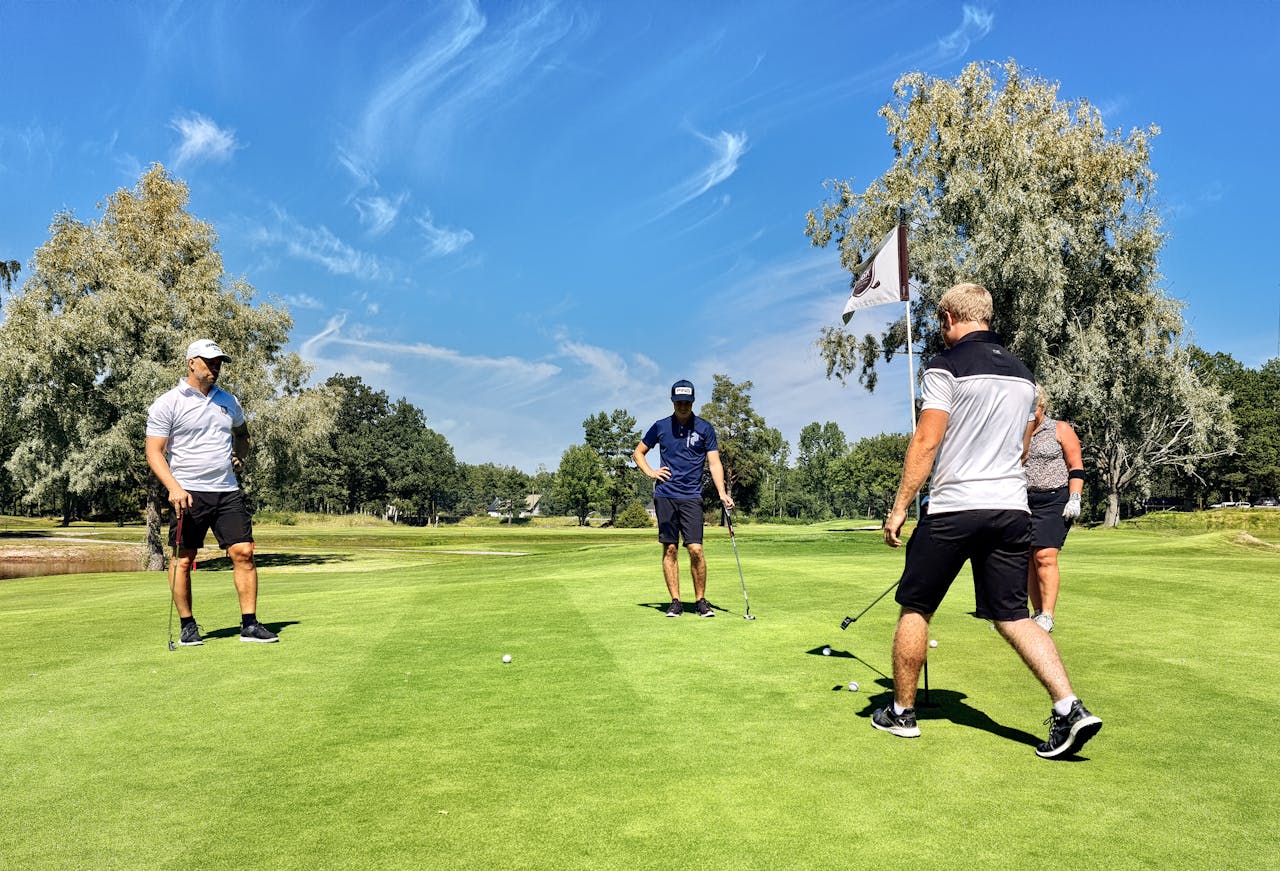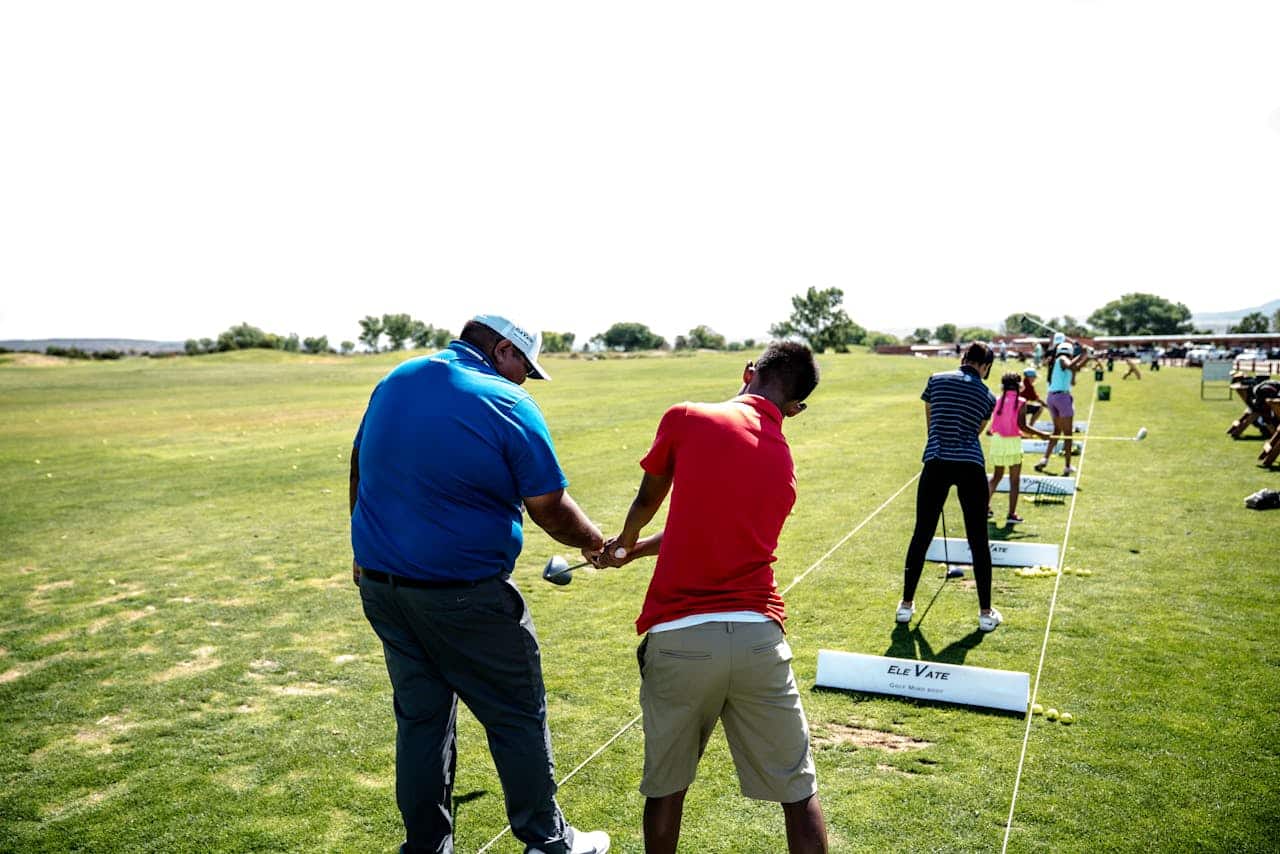
Golf is more than just a leisurely pastime; it’s a sport that combines precision, skill, and strategy. For many newcomers, the appeal of golf lies in its challenge and the enjoyment of the outdoors.
However, as inviting as it may seem, golf can also be one of the most technically demanding sports to master. This article aims to explore why first-time golfers need professional instruction, not only to get started on the right foot but also to foster a lasting love for the game.
The purpose of this post is straightforward yet essential: to highlight why first-time golfers need golf lessons from seasoned professionals. Unlike sports that allow one to easily pick up skills through casual play or by watching others, golf demands rigorous attention to detail and a solid understanding of its fundamentals. Attempting to learn without guidance often leads beginners down a frustrating path filled with bad habits and missed potential.
Understanding why first-time golfers need golf lessons begins with recognising the sport’s inherent complexity. From perfecting your swing mechanics to grasping course navigation and etiquette, every aspect has its intricacies that require dedicated learning. Without expert instruction, beginners may struggle significantly, diminishing their initial enthusiasm and sharply increasing their chances of giving up prematurely. Expert lessons simplify this intricate learning process by providing structured guidance tailored especially for novices.
Initial Learning Curve in Golf
Golf is often perceived as a leisurely sport, yet it’s packed with intricate nuances that can overwhelm first-time golfers. The initial learning curve in golf is steep due to the myriad of technical aspects involved. From understanding the physics of ball flight to mastering a consistent pre-shot routine, every element requires attention and practice. This complexity highlights why first-time golfers need golf lessons, as expert guidance can demystify these components and lay down a solid foundation.
Attempting to learn golf independently can prove daunting for beginners. The challenge lies not just in executing the various strokes but also in recognising what went wrong when the ball doesn’t quite soar or roll as expected. Without the keen eye of an instructor, identifying and correcting mistakes becomes a guessing game.
For many novices, this results in frustration and even potential abandonment of the game entirely. Expert lessons simplify this learning process by providing clear instructions and immediate feedback.
Professional golf instructors are adept at breaking down complex techniques into manageable steps that build progressively on each other. They offer structured training programmes designed to address each aspect of the game systematically. For example, an instructor might start with grip adjustments before refining stance and posture, ensuring that foundational errors do not carry forward. By receiving professional input from the onset, beginners avoid forming bad habits, making their journey towards proficiency smoother and more enjoyable.
- Clear instructions to manage confusion.
- Immediate feedback for faster correction.
- Structured training programmes for systematic learning.
In essence, partnering with a seasoned coach equips novice golfers with essential skills right from day one, significantly lowering the intimidating nature of golf’s learning curve.
Understanding the Fundamentals
Golf is a sport that demands precise techniques and a solid understanding of its foundational elements. For first-time golfers, mastering the basics such as grip, stance, and posture is crucial to developing a reliable and effective golf game. This is why first-time golfers need golf lessons to ensure these fundamentals are ingrained correctly from the start. A professional golf instructor plays an integral role in teaching these core principles efficiently and accurately.
A proper grip lays the groundwork for every successful shot. An instructor will teach beginners how to position their hands correctly on the club, ensuring control and flexibility. Incorrect gripping can lead to myriad issues, including slicing or hooking the ball unintentionally.
Alongside grip, stance is equally pivotal; it provides balance and stability throughout the swing. Professional lessons help new golfers understand how to distribute their weight appropriately and align their body with the target. These fundamental skills become second nature through repetitive drills guided by knowledgeable instructors.
Maintaining correct posture is another fundamental aspect emphasised during initial lessons. A slouched or overly rigid posture can hinder swing mechanics and potentially cause physical strain or injury over time. Proper posture facilitates smooth and powerful swings while reducing injury risks. Instructors focus on building muscle memory for these positions early on so that bad habits don’t form and solidify as new players advance in their learning journey.
| Fundamental | Importance |
|---|---|
| Grip | Ensures control and flexibility of shots. |
| Stance | Provides balance and stability throughout swings. |
| Posture | Facilitates smooth swings and reduces injury risks. |
Proper Swing Mechanics
One of the most intricate aspects of golf is mastering the swing. The swing is not just about hitting the ball but involves a sophisticated sequence of actions requiring precise coordination and timing. For first-time golfers, understanding every component—from grip adjustment to follow-through—can seem overwhelming. Without professional guidance, beginners often adopt incorrect stances and flawed movements that can quickly become ingrained habits. These poor techniques can be hard to unlearn and significantly hinder long-term progress.
Common Mistakes Beginners Make
It’s common for first-time golfers to make several mistakes related to swing mechanics. These errors include improper grip pressure, an unbalanced stance, and incorrect shoulder alignment during the shot.
Additionally, many beginners tend to overswing in an attempt to hit the ball farther, which generally results in inconsistent contact and decreased control over the ball’s direction and distance. Expert lessons are particularly vital here; instructors can immediately identify these issues and provide corrective techniques that promote a smoother, more effective swing.
Ensuring Correct Technique
Professional instruction plays a significant role in ensuring that beginners learn correct swing mechanics right from the start. A golf instructor offers detailed feedback on each element of your swing—from setup to execution—allowing for immediate corrections and thus preventing bad habits from forming.
Through tailored exercises and drills specifically designed for beginners, these professionals ensure consistent improvement over time. This expert guidance highlights exactly why first-time golfers need golf lessons: it lays down a strong foundation for developing efficient techniques that boost both performance and enjoyment on the course.
Customised Instruction
One of the significant advantages of taking expert golf lessons is the customised instruction tailored to individual needs. Unlike generic tutorials or self-help guides, professional golf instructors evaluate each beginner’s unique strengths and weaknesses to personalise their teaching approach.
This personalised attention ensures that specific areas requiring improvement are addressed right from the start, which is particularly vital when considering why first-time golfers need golf lessons. Golf is not a one-size-fits-all sport; what works for one player might not necessarily be applicable to another, making tailored guidance essential for effective learning.
Professional instructors employ various assessment techniques to understand a golfer’s abilities and limitations. They might conduct initial evaluations using advanced tools like motion capture technology, video analysis, or even simple observation during practice swings. Based on these assessments, they design customised drills and practice routines that focus on enhancing individual performance. For instance:
- Swing adjustments: Specific tweaks to improve accuracy and consistency.
- Strengthening weak spots: Targeted exercises for muscle groups critical in golfing.
- Mental strategies: Personalised advice on focusing techniques and dealing with pressure.
This bespoke approach not only accelerates progress but also prevents the development of bad habits that are hard to break once ingrained.
Moreover, customised instruction can significantly shorten the learning curve for beginners. By addressing personal challenges promptly and effectively, expert instructors ensure more productive practice sessions. Beginners often feel overwhelmed by trying to juggle multiple aspects of their game simultaneously—grip, stance, swing mechanics—but with personalised coaching, these elements are introduced methodically in a manageable sequence. With clear milestones set by an instructor:
- Setting realistic goals: Breaking down complex skills into achievable steps.
- Progress tracking: Ongoing evaluations to adjust training plans as needed.
- Positive reinforcement: Encouragement and feedback that build confidence.
These tailored learning paths not only make the journey less daunting but also more enjoyable, motivating first-time golfers to persist through initial frustrations and stay committed to improving their game in the long term.
Expert instructors bring out the best in a first-time golfer by aligning their teaching methods with the learner’s natural capabilities and learning style. They provide individualised attention that maximises strengths while effectively managing weaknesses—something difficult to achieve through generic instructional content or self-taught methods.
The importance of this personalised approach cannot be overstated; it’s one of the key factors why first-time golfers need golf lessons from professionals who can guide them towards becoming confident and skilled players much faster than they could manage alone.
Avoiding Injury
One of the most overlooked aspects of starting in golf is the potential for injury, especially for first-time golfers. Non-professional beginners often lack an understanding of the physical nuances involved in golf, which can lead to unnecessary strain and injuries. Common ailments include tendonitis, lower back pain, and wrist injuries. These injuries can easily be prevented with proper technique and conditioning taught by expert instructors.
Professional golf lessons emphasise safe practices and correct techniques from the outset, ensuring that beginners develop healthy habits that minimise injury risk. A significant part of why first-time golfers need golf lessons is to understand the biomechanics involved—how to pivot correctly during a swing, how to maintain balance, and how not to overextend muscles.
For example, an instructor can teach you how to properly align your body in relation to the ball, reducing undue stress on your lower back.
Moreover, expert lessons often incorporate physical conditioning tailored specifically for golfing. Conditioning exercises focus on strengthening core muscles, increasing flexibility, and enhancing endurance—factors crucial for preventing injuries. Instructors may introduce stretching routines or strength-training activities designed to support your overall golfing experience. This comprehensive approach ensures that beginners not only learn how to play but also how to sustain their bodies for long-term enjoyment of the sport.
| Common Injuries | Prevention Methods |
|---|---|
| Tendonitis | Proper grip and technique |
| Lower Back Pain | Correct pivoting and alignment |
| Wrist Injuries | Strength training and conditioning exercises |
Building Confidence on the Course
Golf can be an intimidating game for beginners, with its myriad of rules and technical demands. This is precisely why first-time golfers need golf lessons—to build confidence on the course from the outset.





